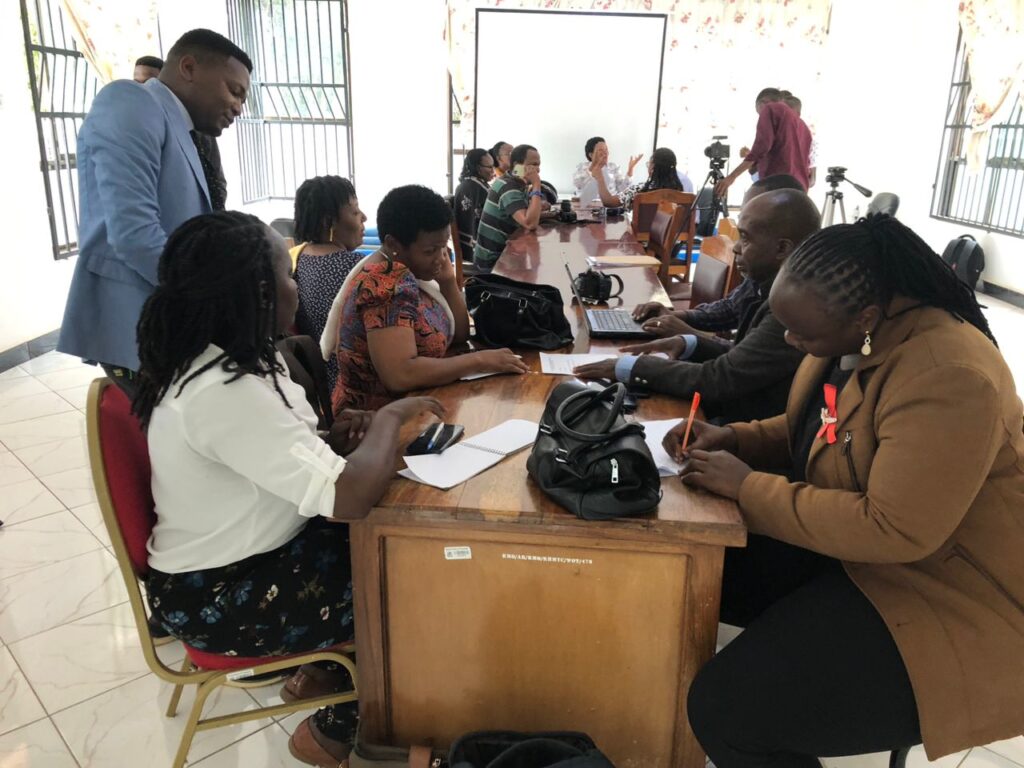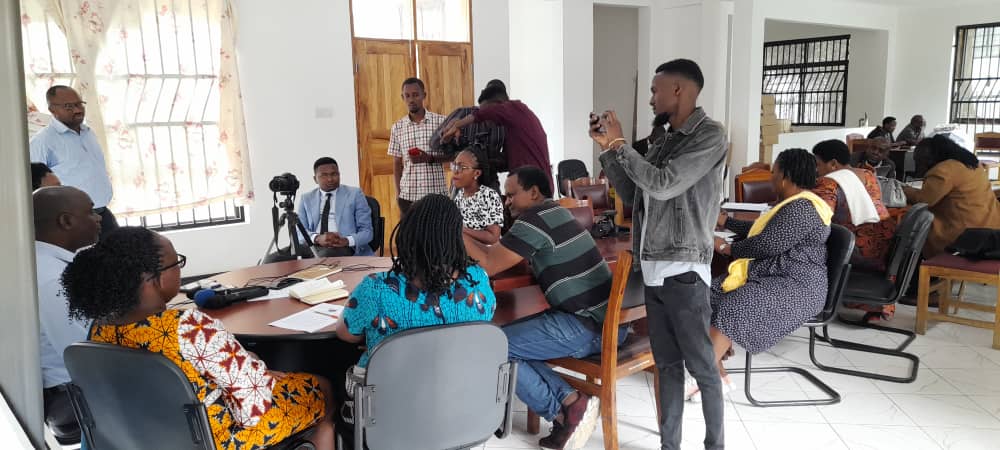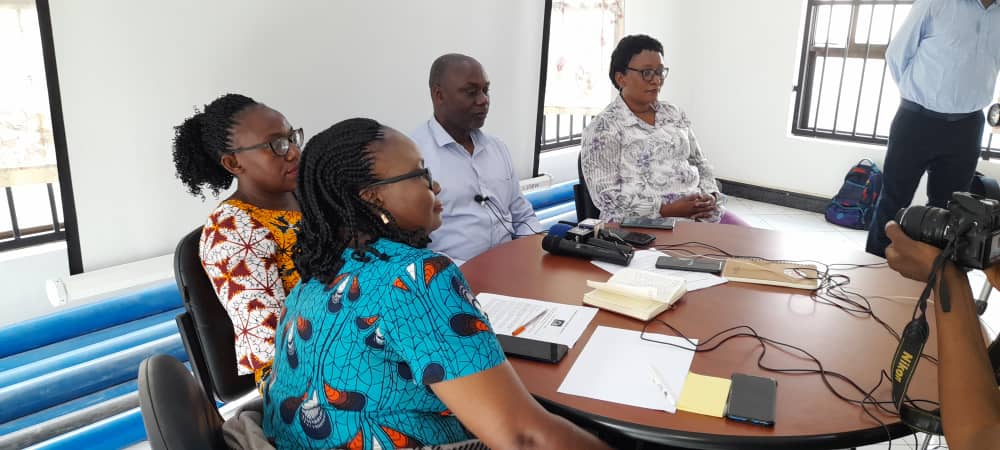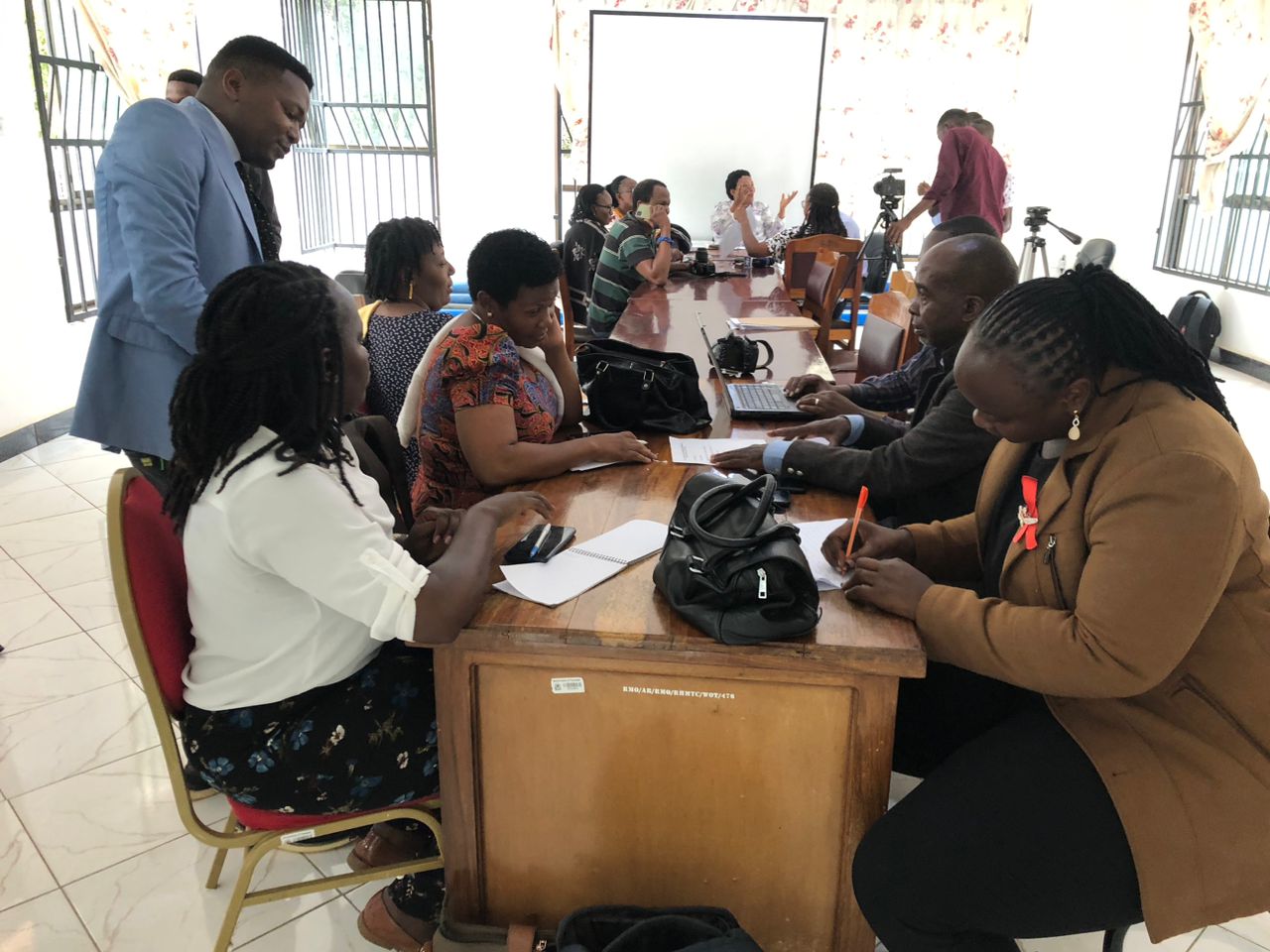
Reading time: 6 min.
At the end of January, we completed the project ‘decent job opportunities for young deaf people in Tanzania’.
The project’s interventions have been tested in three of Tanzania’s 19 regions: Tanga, Iringa, and Mtwara.
It was an ambitious project that aimed to improve deaf youth’s access to education, employment, and economic empowerment. The evaluation report claims promising results. Let’s examine the report more closely.
Economic empowerment and new opportunities
The project has made a tangible difference in the lives of deaf people by providing vocational training and business courses that have enabled many to start their own businesses or gain employment in local companies.
The evaluation reveals that deaf people are now engaging in, e.g. hairdressing, trading, tailoring, handicrafts, and agricultural-related tasks. This has increased their incomes and changed attitudes among key stakeholders, including government and microfinance institutions, who are increasingly willing to offer microloans and job opportunities.
“The evaluation shows that the intervention has reached out to key stakeholders such as officials from the Prime Minister’s Office – Disability Department, business and microfinance institutions, local leaders, employers and academics and lobbied them to support access to microcredit and employment for deaf people,” the report highlights.
At the same time, 86% of deaf respondents report that the project has significantly impacted their communities and contributed to positive changes in attitudes.
Access to training and funding
A central pillar of the project is improved access to education. Deaf people now have the opportunity to attend vocational training courses at technical schools, where they learn tailoring, ICT, baking, and cooking, among other practical skills. Some training centers have even offered direct employment after the courses, creating a direct bridge between learning and the job market.
The project has also succeeded in getting microfinance institutions—including FINCA, Vicoba SACCO, and PRIDE Microfinance—to provide loans to deaf people. However, despite this progress, loan repayment can be challenging, with some deaf borrowers experiencing difficulties communicating with ‘hearing’ customers and partners.
A personal story
The evaluation report recounts several concrete experiences from participants in the project.
Selestine Malima, 32 years old and from Iringa says:
“I am married and have three children. I became deaf at the age of 5 and did not get much education. I only completed the ordinary level because the regular schools could not accommodate me. I had to stay at home after dropping out of school – a situation that later led me to look for odd jobs.
I managed to get a job as a cleaner, but this work did not improve my financial independence. When I started to get involved in CHAVITA’s efforts, it was that the world of opportunities became a reality. I was trained in leadership and advocacy on deaf issues. Back in Iringa, I gained business skills through the courses offered by the project.
After the course, I expected to start my own business and through the savings knowledge I gained during the training, I started saving money. After some time, I had accumulated 300,000 TZS (845 DKK, ed.), which I used to start a business, “Vitenge” or clothing for women and children. Over time, I started to reap the benefits of this business and can now register a profit of 500,000 TZS (1,410 DKK, ed.) on a monthly basis. This has enabled me to fulfill the basic needs of my family.
From now on, I am very responsible for the whole family because my husband does not earn enough. I would like to thank the project for giving us financial skills. Now we can work and earn money. This can help deaf people like me to solve all our problems, although there is a need to reach out to more deaf people.”
Social inclusion and challenges
In addition to the economic benefits, the project has also positively affected the social inclusion of deaf people in the three regions. Many deaf people who were previously isolated due to a lack of sign language support and widespread discrimination are now experiencing greater acceptance in local communities.
However, the evaluation highlights that prejudice still exists – especially in mainstream activities where the lack of sign language interpretation remains a barrier.
As one deaf interviewee put it: “Many deaf youth mentioned that they are not interested in participating in mainstream activities because there are no sign language interpreters and that the ‘hearing’ people always discriminate against them.”
Future challenges and recommendations
Although the project results indicate a positive development, the evaluation points to several areas that require further work to ensure the initiative’s sustainability.
It is recommended that CHAVITA strengthen its local capacity and identify local masters and artisans who can pass on vocational skills to deaf people in remote villages.
In addition, it is recommended that the training programs be reassessed to include basic literacy and numeracy skills and be adapted to the specific needs of deaf people.
“The intervention is on track to achieve its intended goals and addresses most of the critical contextual issues affecting the employability of deaf youth,” the report states.
Conclusion
The evaluation concludes that targeted initiatives that combine vocational training, microfinance, and social inclusion have the potential to change the lives of deaf people fundamentally. With continued efforts and the necessary adjustments, the project can pave the way for a generation of deaf people who become economically independent and gain a more inclusive place in Tanzanian society.
Together with CHAVITA, CICED is considering how to follow up on this first effort to provide decent jobs and better income opportunities for young deaf people in Tanzania.





